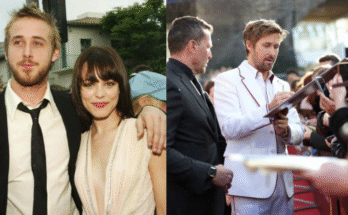The Heart Behind the Brain: Meet Natalie Portman
Before she was known for her roles in billion-dollar franchises, before she won an Academy Award, before she became one of cinema’s most respected actresses—Natalie Portman was a precocious child who taught herself to act, rejected exploitation, and built a career on intellectual rigor and artistic integrity.
Her story proves that the most sustainable careers are built on refusing to be pigeonholed, pursuing education alongside acting, and using one’s platform for causes larger than oneself.
How a Child Prodigy Became One of Cinema’s Most Respected Actresses
The Beginning: New York City Kid, Israeli Heritage
June 29, 1981 – Natalie Hershlag was born in New York City to Shelley, a Czechoslovak-born psychotherapist, and Avraham, an Israeli-born fertility doctor.
Growing up with this background meant:
The Intellectual Environment:
- Both parents highly educated professionals
- Emphasis on education and intellectual pursuits
- Exposure to multiple languages and cultures
- Books and ideas valued over entertainment
- Family discussions about culture, society, and politics
The Family Values:
- Education was paramount
- Achievement through knowledge, not just success
- Social responsibility emphasized
- Cultural identity important
- Questioning and critical thinking encouraged
The Precocious Child: Multiple Talents
Young Natalie was:
Naturally Gifted:
- Fluent in multiple languages (Hebrew, English, French, German, Spanish)
- Excellent student academically
- Interested in science and mathematics
- Dancing and performance abilities
- Never narrowly focused on “showbiz”
The Perspective: Unlike typical child actors, Natalie never viewed acting as her only or primary identity. She was a multi-faceted intellect who acted.

The Invisible Years: From School Play to Hollywood (1984-1993)
The Accidental Acting Start
Natalie’s acting career began unexpectedly:
The Discovery:
- Spotted at a local school play
- Talent agent saw her performance
- Encouraged her to audition for films
- Pursued acting while remaining focused on school
The Early Approach: Her parents were protective and selective:
- Only accepted roles that aligned with values
- Maintained education as priority
- Limited work to prevent exploitation
- Ensured directors respected her age and wellbeing
Early Film Roles: Building Foundation
“The Professional” (1994):
- Her breakout role opposite Jean Reno
- Played Mathilda, a young girl adopted by hitman
- Showed extraordinary range and maturity
- Made her instantly recognizable
The Controversy: This role was controversial—playing a young girl in a film with inappropriate elements. Natalie’s parents had approved it carefully, but it showed early that she would take challenging roles despite discomfort.
“Heat” (1995):
- Supporting role in crime drama
- Worked with major ensemble cast
- Showed she could hold own with established actors
The Pattern: Even in early childhood roles, Natalie chose challenging, complex material rather than cute child parts.
The Franchise Years: Star Wars and Teen Idol Status (1999-2005)
“Star Wars: Episode I – The Phantom Menace” (1999)
When George Lucas cast Natalie as Queen Padmé Amidala in the prequel trilogy, it changed her life:
The Role:
- Lead role in massive franchise
- Instantly made her a global star
- Teen idol status at age 17
- Introduced her to billions of people
The Complication: The character faced criticism (both character and films), but Natalie’s performance was widely praised. She brought intelligence and grace to the role despite the material’s limitations.
The Box Office:
- “The Phantom Menace” – $1.02 billion
- “Attack of the Clones” (2002) – $649 million
- “Revenge of the Sith” (2005) – $848 million
- Total franchise: $2.5+ billion
The Strategic Choice: Rejecting Teen Idol Trap
Here’s where Natalie made a crucial decision:
She refused to be exploited by her fame.
Despite being a teen idol with franchise success, Natalie:
- Continued her education (attended Harvard)
- Took on challenging, smaller roles
- Avoided being typecast as “Padmé”
- Pursued intellectual and artistic growth
- Built credibility beyond franchise success

The Critical Pivot: From Star Wars to Serious Acting (2005-2010)
Harvard and Higher Education
The Decision: While franchise was at its peak, Natalie attended Harvard University (2002-2006).
The Significance:
- Studied psychology
- Maintained intellectual identity alongside acting
- Showed acting wasn’t her only priority
- Built academic credentials
- Proved commitment to intellectual life
The Message: Natalie told Hollywood: “I am more than an actress. I am an intellectual.”
The Artistic Choices: Serious Roles
While in school, Natalie took on challenging roles:
“Closer” (2004):
- Adult drama opposite Jude Law and Clive Owen
- Complex, morally ambiguous character
- Required emotional depth
- Academy Award nomination
- Showed range beyond franchise work
“V for Vendetta” (2006):
- Political thriller
- Action-heavy role
- Required physical training
- Explored themes of resistance and freedom
- Different character type than Padmé
The Independent Films
Natalie also pursued:
“The Other Boleyn Girl” (2008):
- Historical drama
- Showed dramatic range
- Worked with acclaimed director
“The Darjeeling Limited” (2007):
- Wes Anderson indie film
- Small but significant role
- Showed indie sensibility
The Pattern: Natalie was deliberately building artistic credibility beyond franchise success.
The Oscar: Recognition of Mastery (2010)
“Black Swan” (2010) – The Masterpiece
Director Darren Aronofsky cast Natalie as Nina Sayers, a ballet dancer struggling with mental illness and rivalry.
The Performance:
- Transformative, haunting portrayal
- Played the descent into madness with terrifying authenticity
- Lost significant weight (controversial but intentional)
- Required psychological depth
- Academy Award for Best Actress at age 29
The Significance: This wasn’t a win for a franchise or blockbuster. This was recognition of extraordinary dramatic acting.
The Message: Hollywood took notice: Natalie Portman was one of cinema’s finest actresses, not just a pretty face in a franchise.

The Integration: Balancing Art and Commerce (2010-Present)
Continuing Both Blockbuster and Artistic Work
After her Oscar win, Natalie demonstrated she could do both:
Blockbuster Films:
- “Thor” series (2011-2017) – $1.5+ billion franchise
- Played Jane Foster, astrophysicist
- Worked with action franchises while maintaining credibility
Artistic and Independent Films:
- “Your Highness” (2011) – Fantasy comedy
- “Jackie” (2016) – Biographical drama as Jacqueline Kennedy
- “Annihilation” (2018) – Sci-fi thriller
- Academy Award nomination for “Jackie”
The Strategy: Natalie proved that you can be bankable for blockbusters AND maintain artistic credibility if you make intelligent choices.
Directing and Behind-the-Camera Work
“A Tale of Love and Darkness” (2015)
Natalie made her directorial debut with this Israeli film:
The Choice:
- Adapted Israeli author’s memoir
- Directed and starred
- Explored Israeli culture and history
- Showed commitment to storytelling beyond acting
The Significance: She moved beyond acting into filmmaking, expanding her artistic scope.
Personal Life: Balancing Career and Family
Marriage and Children
Benjamin Millepied (2010-2017):
- French-Israeli choreographer and dancer
- Met on “Black Swan” set
- Had two children together
- Divorced in 2017
Second Marriage: Rami Malek (2021-Present):
- Married actor Rami Malek
- Private family life
- Continues balancing acting with motherhood
Motherhood and Career
Natalie has:
- Taken breaks for family
- Discussed motherhood openly
- Balanced demanding roles with parenting
- Shown that women can have both careers and families
- Modeled conscious career choices around family

The Environmental and Social Advocacy
Vegan and Environmental Activist
Natalie has been:
Environmentally Conscious:
- Vegetarian/vegan for ethical reasons
- Advocated for climate action
- Discussed sustainability publicly
- Made conscious choices about roles and collaborators
Animal Rights:
- Supported animal protection organizations
- Used platform to raise awareness
- Integrated values into public persona
Gender Equality:
- Advocated for equal pay in film industry
- Discussed gender discrimination in Hollywood
- Supported #MeToo movement
- Highlighted underrepresentation of women directors
Integration of Values
Unlike some celebrities with public advocacy separate from work, Natalie integrated her values into her artistic choices—choosing projects aligned with her beliefs.
The Box Office and Critical Recognition
Major Film Box Office:
- “Star Wars” prequel trilogy – $2.5+ billion
- “Thor” films – $1.5+ billion
- “Closer” (2004) – $115 million
- “Jackie” (2016) – $57 million (critical success despite modest box office)
- “Annihilation” (2018) – $111 million
Career Box Office:
- Films grossed $5+ billion collectively
- Bankable for both blockbusters and prestige dramas
Awards and Recognition:
- 1 Academy Award (Best Actress for “Black Swan”)
- 4 Academy Award nominations total
- 3 Golden Globe wins
- Multiple BAFTA and international recognition
- Respected as one of cinema’s finest actresses
The Secret Behind Natalie’s Unstoppable Excellence
Lesson 1: Education Alongside Acting
Natalie proved that attending elite universities while maintaining acting career is possible. Education grounded her intellectually.
Lesson 2: Refuse Exploitation Early
Her parents protected her from exploitative situations. She learned to say no to inappropriate roles despite financial temptation.
Lesson 3: Use Franchise for Platform, Not Identity
Star Wars made her famous, but she didn’t allow it to define her. She built credibility beyond it.
Lesson 4: Make Choices Based on Values
Natalie selected roles aligned with her intellectual and ethical values, not just commercial appeal.
Lesson 5: Expand Beyond Acting
By directing, writing, and producing, Natalie expanded her creative scope beyond acting.
Lesson 6: Balance Commercial and Artistic Success
She proved you don’t have to choose between blockbusters and prestige dramas. Strategic choices allow both.
Lesson 7: Integrate Your Values Into Work
Environmental consciousness, gender equality advocacy, animal rights—Natalie integrated these into her professional choices, not separated them.
The Journey: Before & After
| Aspect | The Precocious Child (1984-1998) | The Franchise Star (1999-2009) | The Oscar Winner (2010-Present) |
|---|---|---|---|
| Recognition | Talented child in school plays | Global franchise star | Oscar-winning actress |
| Financial Status | Family support, modest income | Multi-millionaire | $60+ million net worth |
| Career Control | Limited, parents protective | Balancing franchise with indie work | Full creative control |
| Education | School | Harvard University | Continuing learning |
| Box Office Power | None | $2.5+ billion from Star Wars | $5+ billion from all films |
| Awards | None | Nominations | Academy Award + 3 nominations |
| Artistic Credibility | Building through indie films | Growing through serious work | Universal respect |
| Creative Scope | Acting only | Acting primarily | Acting, directing, producing |
| Values Integration | Family values | Growing conscience | Integrated throughout work |
| Global Influence | None | Franchise fame | Respected voice on social issues |

The Bottom Line: Why Natalie’s Story Matters
Natalie Portman proved that an actor can be intelligent, well-educated, and socially conscious—while maintaining blockbuster success and artistic credibility.
She could have:
- Remained franchise star only
- Lost herself in teen idol status
- Prioritized money over meaningful work
- Abandoned education for acting
- Separated public activism from artistic choices
Instead, she: ✓ Attended Harvard while starring in blockbusters ✓ Built artistic credibility alongside franchise work ✓ Won Academy Award for deeply challenging role ✓ Directed her own films ✓ Integrated values throughout career ✓ Advocated for gender equality ✓ Maintained intellectual identity ✓ Refused to be exploited ✓ Built multifaceted career ✓ Proved intelligence is powerful asset
Key Takeaways for Intelligent Creatives
🧠 Education and acting can coexist 🧠 Intelligence is a marketable asset, not obstacle 🧠 Refuse roles that exploit or demean 🧠 Build credibility beyond franchises 🧠 Make choices aligned with values 🧠 Expand into directing and producing 🧠 Balance commercial and artistic work 🧠 Integrate advocacy into professional work 🧠 Your intellectual capacity is your strength 🧠 Longevity comes from refusing to be limited
Natalie Portman’s Defining Words
“I was raised to believe in the power of knowledge and education.”
“I don’t think there’s any way to know what’s ahead of you. I don’t think there’s a roadmap in life, so you just have to try and take positive steps forward.”
“I respect the intelligence and sophistication of my audiences.”
“I’m always interested in roles that are challenging and different.”
“Success is not about how much money you make. It’s about the difference you make in people’s lives.”
The Continuing Evolution
In her early 40s, Natalie continues to:
- Direct and produce meaningful films
- Choose challenging acting roles
- Advocate for social and environmental causes
- Balance career with family responsibilities
- Expand her creative scope
- Maintain intellectual rigor
- Remain relevant across decades
The Real Natalie Portman Story:
Not just an actress who became famous. But an intellectual who:
- Built career on rejecting exploitation
- Attended elite university while acting
- Transformed franchise star into Oscar winner
- Maintained artistic integrity throughout
- Integrated values into professional choices
- Expanded beyond acting into directing
- Advocated for gender equality
- Proved intelligence is strength
- Showed that women can be beautiful, successful, AND intellectually respected
- Demonstrated that career longevity requires refusing to be limited
In a world that often tries to reduce successful women to their appearance, Natalie Portman insisted on being recognized for her intelligence, artistry, and values.
That’s not just a career. That’s a revolutionary legacy.



